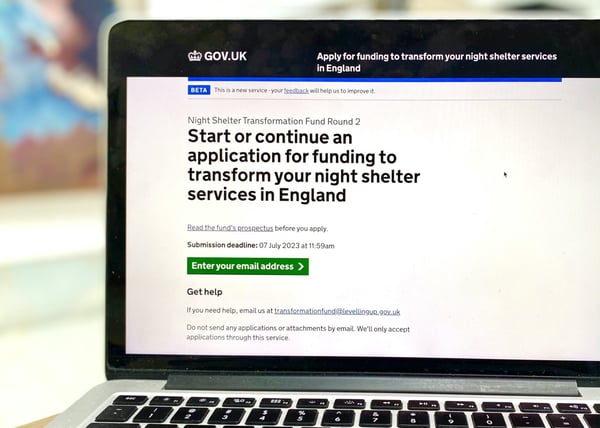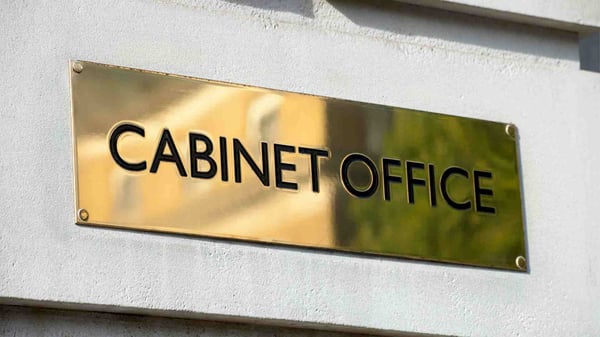Provisional Local Government Finance Settlement revealed
Councils in England will receive £53.9 billion in funding for the coming financial year, including more than £1 billion of additional funding for social care.
The proposed package is the largest cash-terms increase in grant funding for 10 years and makes an extra £3.5 billion available compared to 2021-22, including a grant worth £822 million for councils to spend as they see fit to best meet local needs.
This is the fourth one-year settlement in a row for councils, which hinders attempts for longer term financial planning and investment.
"The funding package represents a real-terms increase from last year’s settlement and will make sure councils can improve vital frontline services, support vulnerable people and protect residents from excessive council tax rises as we build back better form the pandemic," said Secretary of State for Levelling Up Rt Hon Michael Gove.
The provisional settlement consultation will be open for 4 weeks, closing on 13 January 2022. The government will provide confirmation of the final local government finance settlement once consultation is complete in the New Year.
 "The increase in grant together with council tax raising powers confirmed today, will support councils to meet extra cost and demand-led pressures next year to keep providing services at pre-pandemic levels," said Cllr James Jamieson, Chairman of the Local Government Association, in response to the Government's announcement. “However, for that to happen every council will have to raise council tax by the maximum next year. This leaves them facing the tough choice about whether to increase council tax bills to bring in desperately-needed funding at a time when they are acutely aware of the significant burden that could place on some households."
"The increase in grant together with council tax raising powers confirmed today, will support councils to meet extra cost and demand-led pressures next year to keep providing services at pre-pandemic levels," said Cllr James Jamieson, Chairman of the Local Government Association, in response to the Government's announcement. “However, for that to happen every council will have to raise council tax by the maximum next year. This leaves them facing the tough choice about whether to increase council tax bills to bring in desperately-needed funding at a time when they are acutely aware of the significant burden that could place on some households."
In October the government set out the outcome of the multi-year Spending Review. Core Spending Power for local authorities is estimated to increase by an average of 3% in real terms each year, including investment in Adult Social Care reform. The government is providing around £1.6 billion additional grant in LGDEL in each year, including funding for Supporting Families and Cyber Resilience.
According to the Department for Levelling Up, Housing and Communities, the announced funding will enable councils to continue to deliver vital services and look after the most vulnerable in their communities. It will also support councils to play a significant role in the government’s transformative levelling up agenda as the country builds back better from the pandemic.
At the same time, this settlement will protect residents will also be protected from excessive council tax increases. From next year, the amount council tax can be increased by without a vote has been reduced to 2%, with an extra 1% for councils with adult social care responsibilities.
The Provisional Finance Settlement includes:
-
More funding for social care: The government is making more than £1 billion of additional funding available for social care, ensuring councils can improve conditions for carers and those in need. In addition, £162 million will be allocated to prepare councils for social care reform and to help move towards providing a fair cost of care.
-
Preventing excessive council tax rises: Residents will continue to have the final say over excessive council tax increases. From next year, the amount council tax can be increased without a vote has been reduced to 2%, with an extra 1% for councils with adult social care responsibilities.
-
New Homes Bonus: £554 million has been allocated to English councils in 2022/23. This brings the total amount of funding awarded under the New Homes Bonus to £10 billion, which has seen over 2.3 million additional homes being built, of which more than 560,000 are affordable homes. The government remains committed to reforming New Homes Bonus to improve how housing growth is incentivised, and our response to the consultation on the New Homes Bonus will be published in the coming months.
-
Lower Tier Services Grant: Providing £111 million to councils with responsibility for services such as homelessness, planning, recycling and refuse collection and leisure services. The funding floor has been updated so that no council will have less funding available in 2022/23 than this year.
-
Continued support for rural areas: The government recognises rural areas can face additional cost pressures, which is why the £85 million Rural Service Delivery Grant will continue to be provided.
-
Business Rates Retention pilots: Continuing the 100% Business Rates Retention pilots in Cornwall, Greater Manchester, Liverpool, West Midlands and West of England and 67% Business Rates Retention for London councils, enabling them to control more of the money they raise locally.
-
Revenue Support Grant: An uplift to the Revenue Support Grant in line with inflation, worth over £70 million.
The government has also announced today a package of measures to improve the timely completion of local audits, including £45 million additional funding over the next 3 years to support local councils with increased costs relating to new audit requirements. These measures will help improve transparency and accountability in councils.
The government is committed to ensuring that funding allocations for councils are based on an up-to-date assessment of their needs and resources. The data used to assess this has not been updated in a number of years, dating from 2013-14 to a large degree, and even as far back as 2000. Over the coming months, DLUHC will work closely with the sector and other stakeholders to update this and to look at the challenges and opportunities facing the sector before consulting on any potential changes.
In addition, the Home Office has today published the provisional police funding settlement, which includes setting out funding allocations for Police and Crime Commissioners. The policing system will receive up to £16.9 billion to tackle crime and recruit more officers in 2022/23, a £1.1billion increase on last year.







